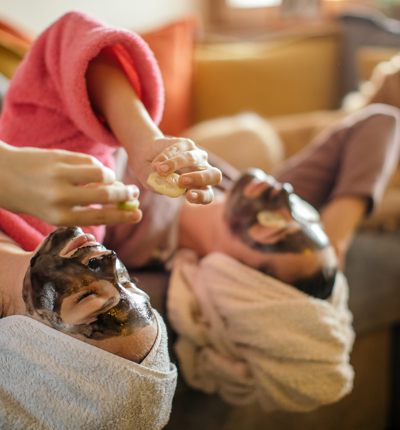
Beauty and cosmetic regimes under lockdown – is it worth it?
Tina Patel and Irene Karidas discuss the risks involved in buying beauty products online and trying DIY treatments at home amid the restrictions imposed by the COVID-19 pandemic.
Posted on 01 June 2020
It is safe to say that lockdown has taken a toll on all aspects of everyday life, including our daily, weekly and monthly beauty routines.
The days when we could browse the stores for a new cream or attend beauty salons and hairdressers for treatments seem long gone and will be for the foreseeable future.
Of course, some consumers still do want to maintain their beauty regimes as much as possible, and these days it is easy to do so with online ordering and DIY beauty treatments. Consumers should be warned, however, about the dangers that lie in purchasing unlicensed cosmetics products and adopting at-home treatment techniques.
Online beauty product and treatment purchases
Online purchases have surged as consumers are unable to go out to retailers to purchase beauty products and although online purchases have been a blessing for many, consumers should look out for a number of dangers.
One concern is that online retailers could be selling unlicensed products that are posing as the authentic product.
Cosmetic products are still under the control of EU regulations which should be adhered to from the point of manufacture to the point of delivery to the consumer’s home.
Extreme care should be taken by consumers in reviewing products prior to purchase, as well as checking the accreditation of the manufacturer and retailer. Although consumers who are confident they know their favoured products may overlook this, awareness of the ingredients and contents is paramount. This is especially important if consumers want to opt for something different in their beauty regime during quarantine - make sure to read the product details and look out for anything that could cause any adverse and unwanted effects.
DIY beauty treatments
As consumers are no longer able to keep up their beauty treatment routines, such as fillers or lash-extensions, it is no surprise that people are looking online for at-home alternatives. However, at-home beauty treatments carry a different variety of risks that consumers should be aware of.
The problem is that many consumers will probably not be familiar with the specifics of their treatment, nor will they have the skills and ability to carry them out properly and safely. Lip and dermal fillers, for instance, should only be administered by trained professionals.
In a recent article in the Telegraph anaesthetic specialist Dr Lauren Hamilton pointed out the severe effects of fillers going wrong and the dangers to health such as blindness and infections.
For instance, it is reported that misuse of the product can lead to the filler entering the arteries which can have life-altering effects.
Whilst there are many beauty bloggers and therapists who have taken to demonstrating how to do DIY treatments and home hair dyes to achieve a salon look on YouTube channels and social media, we would urge individuals not to embark on this route.
A catalogue of things could go wrong which could require medical treatment and thereby increase the burden on the NHS.
For anyone who does try such DIY treatments, as many precautions as possible should be taken; our top tips on using cosmetics safely may assist.
At-home beauty treatment visits
There has been a multitude of allegations that beauty salons and owners have been operating on a home-visit basis despite the stringent lockdown and social distancing rules set out by the Government.
This includes beauticians advertising their services on online platforms and paying visits to people’s homes in on order to carry out their treatment. Besides being a threat to people’s safety by potentially increasing the spread of COVID-19, it is unlikely that consumers’ homes provide the safe environment and facilities for the desired treatments. To this effect, it is positive that the National Hair and Beauty Federation has addressed this and warned that beauticians engaging in such activity could face being fined.
All Party Parliamentary Group Inquiry into Non-Surgical Beauty Procedures
The need for regulation of this industry is pertinent now more than ever. Of course, it is not just lockdown that has highlighted this issue, but the effects of beauty treatment necessities during lockdown has fuelled the need for an imminent investigation into non-regulated practices. This comes as a result of several horror stories from consumers who have suffered life-altering changes as a result of undergoing unregulated cosmetic treatments.
An inquiry was launched on 15 May 2020 to investigate the dangers that come with non-surgical cosmetic procedures to include such salon practices as well as online purchases of DIY fillers and other at-home beauty treatments.
This group is seeking insight and clarity on the types of procedures that are carried out, where and by whom along with the type of qualifications and training they have.
Interestingly, it is believed that the inquiry will investigate the effects of social media on the consumers’ desire to purchase such products as well as the impact on the more vulnerable in society.
Further, it will investigate consumer safety and the adequacy of the current licensing regulation.
It is positive to see such intervention that will look into this field and hopefully take action to ensure that in a popular market, consumer safety is paramount, whether in times of a pandemic or when usual beauty retail practices are restored.


